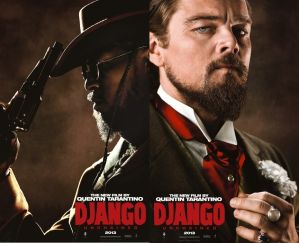Tarantino’s “Django Unchained” test political boundaries, but who’s to say who can or cannot create a film?

Quentin Tarantino’s film “Django Unchained” raised many eyebrows because of its revenge driven plot. The film combines brilliant acting, gore, dark humor, which are standard traits of any Tarantino film. The culturally driven and violent obsessed director pulled off yet another eccentric yet controversial film much like his past features, “Pulp Fiction” and “Inglorious Basterds.”
This Spaghetti-Western film fiddles with the past and plays with the viewers’ perceptions, thereby disturbing a lot of people. The naked display of cruelties of the callous and inhumane customs of slavery has critics in uproar, specifically prominent African Americans intellectuals and filmmakers including Spike Lee.
Spike said in an interview with VibeTV, “It’d be disrespectful to my ancestors to see that film. That’s the only thing I’m going to say. I can’t disrespect my ancestors.”
The only thing that Tarantino’s film may have disrespected is the narrow-minded role of Calvin Candie (Leonardo DiCaprio), who owned a prosperous plantation and specialized in “mandingo” where he trained his strongest black men slaves to brutally fight to the death.
However, sympathy is given to those who feel misrepresented within their own history. The cultural narratives that Tarantino presents such as the German Nazis in “Inglorious Basterds” and slavery in “Django Unchained” all in all are foreign to him. The question seems to be, is Tarantino allowed to tell the story of African-American slaves in his own manner, one of the most horrendous tragedies in history?
When it comes to fiction, a filmmaker’s repertoire would be very limited if he or she could only tackle stories that are familiar to him or her personally. One’s artistic license seems to be an ongoing issue in today’s society. “But it’s worth thinking about whether or not creative work that represents a culture other than the creator’s is worthwhile as long as it comes from a place of appreciation,” wrote Samuel Sattin, from Salon.com in a movie review.
The same issue is very well seen in the Oscar-nominated, A-list cast movie, ‘The Help,” where a white, well-intentioned and ambitious writer Skeeter (Emma Stone) tells the tale of an African-American house maid Aibileen (Viola Davis) who takes you into the world of Jackson, Miss. in the early 1960s where sexual harassment and racial prejudices are customary for black Americans. It is clear that one of the main problems is that a white woman wrote the story.
Isn’t the whole role of fiction to inhabit someone else? Critic Mary Williams writes, “Don’t assume that only the Toni Morrisons or Alice Walkers or Sapphires of the world have permission to write in the voice of African-American women. Or, for that matter, that members of any group should only write about their own.”
Unlike Tarantino’s film, which is dominated by male roles, “The Help” presents the ways that in which females endured racism. Whether you enjoyed the feel-bad feel-good movies, there is a difference between cringing through the word “nigger” at the corners of most lines, and being critical of someone’s right to create it.
Tarantino’s narrative of a victim becoming a hero and overcoming his oppressor in itself shows that this movie essentially is a heart-felt story made for a variety of audiences. Aren’t 21st century Americans’ goals to co-exist and understands each other’s cultures and histories?
In both “The Help” and “Django Unchained,” audiences find themselves in awe and moviegoers can argue that culture on screen may be politically wrong but both films do a pretty good job at pushing limits. At the end of the day the two films both expose memorable showings that will certainty have people talking. It takes the finest films to produce raw reactions in the eyes of any American, not matter what culture you come from.
Excerpt: Tarantino’s “Django Unchained” raised many political critiques during its viewing. Does this take away from a filmmaker’s ability to make a film with his or her own artistic value?


